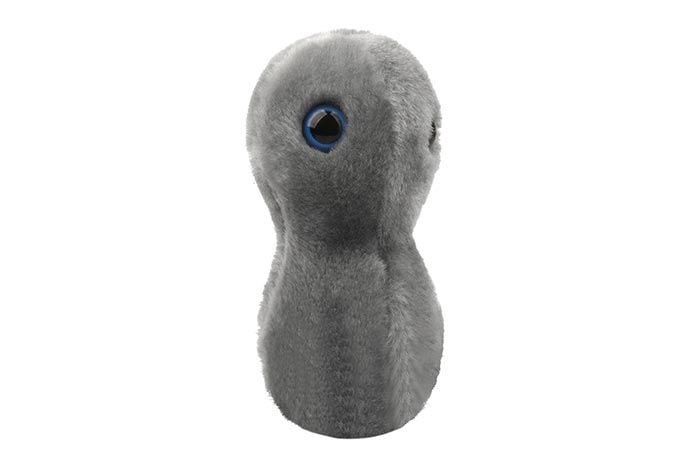Dogs can’t get gonorrhea like humans do. Gonorrhea is a human-specific disease.
It doesn’t typically affect animals, including dogs. Yet, canine health is complex. Understanding diseases in pets is crucial for owners. Pets can catch various infections, just not gonorrhea from humans. Knowing which diseases dogs can contract helps with prevention and care.
Pet owners often worry about their dog’s health, especially if they notice unusual symptoms. It’s essential to differentiate between human and animal diseases for effective treatment. This knowledge aids in maintaining a dog’s health and well-being. Let’s explore more about diseases in dogs and how they differ from human illnesses. This insight is vital for every pet owner to ensure proper care and attention.

Credit: www.cdph.ca.gov
Introduction To Canine Health
Understanding your dog’s health is crucial to their well-being. Just like humans, dogs can face various health issues throughout their lives. By learning about common health concerns, you can take proactive steps to ensure your furry friend stays happy and healthy.
Imagine the peace of mind you’d have knowing the signs of illness in your dog. Recognizing these signs early can make a world of difference. Let’s dive into some common health concerns and zoonotic diseases that could affect your pet.
Common Health Concerns
Dogs often suffer from ailments such as ear infections, dental diseases, and arthritis. These issues can be uncomfortable and may lead to more severe problems if left untreated.
Regular vet check-ups are essential. They help catch these problems early, allowing for timely treatment. Have you ever noticed your dog scratching their ears excessively? It might be time to consult your vet.
Another common concern is obesity. Maintaining a balanced diet and regular exercise can prevent it. Have you considered portion control and choosing the right dog food?
Zoonotic Diseases
Zoonotic diseases are illnesses that can be transmitted from animals to humans. While it’s rare for dogs to transmit gonorrhea to humans, it’s important to be aware of other zoonotic diseases.
Rabies, for instance, is a well-known zoonotic disease. Vaccinating your dog is vital to prevent it. Are you up to date on your dog’s vaccinations?
Leptospirosis is another concern. It can be spread through water contaminated with infected animal urine. Ensuring your dog avoids such areas is a practical step.
Understanding these health aspects empowers you to keep your dog safe and healthy. What steps can you take today to improve your dog’s health? Remember, your proactive approach can significantly impact your dog’s quality of life.

Credit: www.giantmicrobes.com
Exploring Gonorrhea
Gonorrhea is a topic that often raises questions about health and transmission. Many wonder if animals, like dogs, can contract this infection. To understand this, we first explore gonorrhea itself and how it spreads among humans.
What Is Gonorrhea?
Gonorrhea is a sexually transmitted infection caused by bacteria. It affects humans and can lead to serious health issues if untreated. Symptoms can vary but often include painful urination and discharge. Gonorrhea can affect both men and women.
Some may wonder about its impact on animals. The bacteria responsible for gonorrhea specifically target human cells. This means the infection does not typically spread to dogs. Understanding the nature of this bacteria helps clarify its limitations.
Transmission In Humans
Gonorrhea spreads through sexual contact. This includes vaginal, anal, and oral sex. The bacteria can infect the reproductive tract, mouth, and rectum. It requires direct contact with an infected person.
Using protection during sex reduces the risk of transmission. Regular health check-ups help identify and treat infections early. Awareness and prevention are key to managing gonorrhea. Education about safe practices is essential for reducing the spread.
Gonorrhea In Animals
Gonorrhea is a term often associated with humans, but did you know that it’s not exclusive to us? While it’s rare, some animals can indeed be affected by diseases similar to gonorrhea. Understanding how these conditions manifest in animals can help us better care for our furry companions and ensure they remain healthy. Let’s delve into the world of gonorrhea-like infections in animals and see what species are affected and what symptoms they might show.
Affected Species
It’s important to know which animals are at risk. Surprisingly, gonorrhea as we know it doesn’t occur in dogs. However, animals like cattle and horses can suffer from similar infections. These infections are usually caused by different bacteria that mimic the symptoms of gonorrhea found in humans.
Have you ever wondered about your pet’s health in relation to other animals? While your dog is safe from gonorrhea, it’s fascinating to learn that other animals are not as fortunate. This highlights the diverse challenges different species face, underscoring the need for species-specific care.
Symptoms In Animals
Recognizing symptoms is crucial for early intervention. In affected animals, symptoms can vary widely. In cattle, for example, these infections may lead to reproductive issues, impacting fertility and causing economic concerns for farmers.
Horses might show signs of discomfort, with symptoms such as nasal discharge and joint swelling. If you notice unusual symptoms in your animals, it’s always wise to consult a veterinarian. Catching these signs early can prevent more serious health problems down the road.
Have you ever seen an animal in discomfort and wished you could help? Knowing the symptoms to look out for can empower you to take swift action, ensuring the animals in your care receive the attention they need.
Can Dogs Contract Gonorrhea?
Can Dogs Contract Gonorrhea?
It’s a question that might raise eyebrows or prompt a quick search on Google. Can dogs actually get gonorrhea, a sexually transmitted infection that’s well-known among humans? The straightforward answer is no, dogs cannot contract the same gonorrhea that affects humans. However, understanding the nuances and scientific findings on this topic is crucial for dog owners who want to keep their furry friends healthy.
Scientific Findings
Research has shown that the bacteria Neisseria gonorrhoeae, which causes gonorrhea in humans, is species-specific. This means it’s adapted to infect humans only. Dogs have their own set of bacteria and parasites that can cause infections, but gonorrhea isn’t one of them.
While this might be a relief, it’s important to stay informed about other zoonotic diseases—illnesses that can transfer between animals and humans. Understanding these can help you protect both yourself and your pet from potential health risks.
Veterinary Perspectives
Veterinarians often encounter questions about STIs in pets, and their advice is simple. Dogs can’t get gonorrhea, but they can suffer from other reproductive tract infections. Conditions like canine brucellosis or canine herpesvirus are more relevant and can impact a dog’s health.
Regular vet check-ups are vital to catch any potential issues early. If your dog displays symptoms like unusual discharge or frequent urination, it’s best to consult your vet. These could be signs of other infections that require attention.
Have you ever wondered how knowledgeable your vet is about zoonotic diseases? Next time you’re at the vet, ask about common infections in dogs. This could provide insights and help you better understand how to care for your pet.
Staying informed about your dog’s health needs can make a significant difference. Your curiosity and proactive approach can lead to a happier, healthier life for your pet.
Risks To Dogs
Dogs are beloved companions, and their health is important to owners. Understanding the risks that diseases pose to dogs is crucial. One such risk is the possibility of contracting gonorrhea. While gonorrhea is primarily a human condition, it’s vital to know how it can impact dogs.
Potential Health Impacts
Dogs can face various health issues if exposed to gonorrhea. The bacteria can lead to infections in reproductive organs. This might result in discomfort and pain for the dog. It can also affect their ability to reproduce. If left untreated, infections can become severe. This requires immediate veterinary attention.
Preventative Measures
Preventing gonorrhea in dogs involves maintaining hygiene. Ensure your dog avoids contact with infected animals. Regular veterinary check-ups can help detect any issues early. Keep your dog’s environment clean and safe. Limit exposure to unfamiliar animals to reduce risks.
By following these measures, you can safeguard your dog’s health. A healthy dog is a happy companion. Prevention is key to ensuring their well-being.

Credit: www.amazon.com
Safeguarding Pet Health
When it comes to keeping our furry friends healthy, safeguarding their well-being is crucial. As pet owners, you might wonder about various health risks, including whether dogs can contract human diseases like gonorrhea. It’s important to understand the boundaries of pet health and how to ensure your dog leads a happy and safe life. Let’s dive into practical steps you can take to protect your pet’s health.
Routine Veterinary Care
Regular check-ups are essential for your dog’s health. Schedule annual visits to the vet to catch any potential issues early. Vets can provide vaccinations, flea treatments, and advice tailored to your dog’s needs.
Does your dog act differently or show signs of discomfort? Don’t wait for the annual visit. Consult your vet immediately to address any unusual symptoms.
Think of your vet as a partner in your dog’s health. This relationship ensures that your pet receives the best care possible throughout their life.
Healthy Lifestyle Tips
Maintain a balanced diet for your dog. Choose foods that provide essential nutrients without fillers. A healthy diet boosts their immune system and energy levels.
Exercise is key. Whether it’s a walk in the park or backyard playtime, physical activity keeps your dog fit and happy. It also strengthens the bond between you and your pet.
How do you keep your dog’s mental health in check? Engage them with toys and training exercises. Mental stimulation is just as important as physical exercise.
By prioritizing routine care and a healthy lifestyle, you can keep your dog safe from many health risks. Are you providing your pet with the necessary tools to lead a healthy life?
Debunking Myths
When it comes to pets, myths abound. Especially about their health. Many worry if dogs can contract human diseases. Gonorrhea, a common human STD, is one of them. Let’s debunk some myths about dogs and gonorrhea.
Common Misconceptions
People often assume dogs can catch gonorrhea from humans. This belief is false. Gonorrhea is a human-specific infection. It cannot transfer to dogs. Another myth is that dogs can show similar symptoms. Dogs may have similar issues, but not from gonorrhea.
Fact Vs Fiction
Fiction states dogs can carry gonorrhea. Fact says it’s impossible. Dogs have their own infections, but not human STDs. Misunderstandings arise from similar symptoms. Always consult a vet for accurate diagnosis.
It’s important to rely on scientific facts. Myths can lead to unnecessary worry. Understanding the truth helps in caring for your dog better.
Frequently Asked Questions
Can I Get Gonorrhea From My Dog?
Humans cannot contract gonorrhea from dogs. Gonorrhea is a sexually transmitted infection specific to humans. Always consult a healthcare provider for medical concerns.
Can Stds Be Transmitted To Dogs?
STDs in humans cannot be transmitted to dogs. Dogs have their own species-specific infections. Regular veterinary check-ups ensure your dog’s health.
Can You Get Gonorrhea From Animals?
Humans cannot contract gonorrhea from animals. It is a sexually transmitted infection affecting humans only. Always practice safe sex to prevent transmission.
What Infections Can Dogs Get From Humans?
Dogs can contract infections like MRSA, flu, and certain types of fungal infections from humans. Practice good hygiene to minimize risks. Keep your dog healthy with regular vet visits and vaccinations.
Conclusion
Dogs cannot contract gonorrhea from humans. This infection is specific to humans. It spreads through sexual contact. While dogs have their own health issues, gonorrhea is not one of them. Always ensure your pet’s environment is clean and safe. Maintain regular vet visits for overall health.
If your dog shows unusual symptoms, consult a vet promptly. Other infections can resemble human gonorrhea symptoms in dogs. Proper hygiene and care are crucial for a healthy pet. Understanding pet health helps ensure their well-being. Keep learning about your dog’s health needs.
Your furry friend deserves a happy, healthy life.